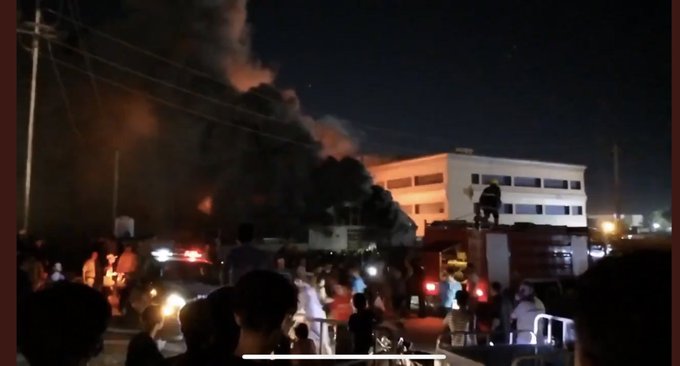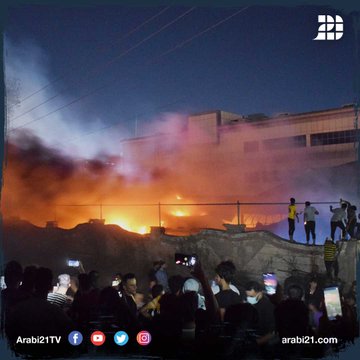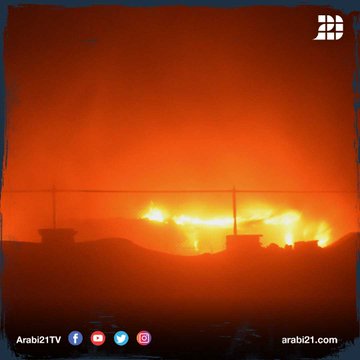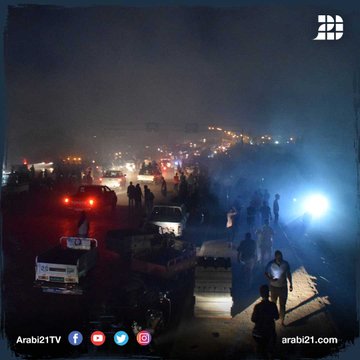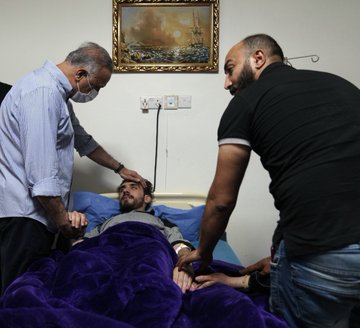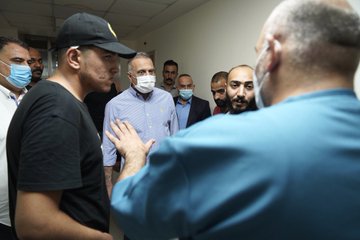On Sunday, July 11, Virgin Galactic successfully sent four passengers to the edge of space using its SpaceShipTwo class vessel VSS Unity during the company’s latest test flight. The entire affair was massively promoted by Virgin Galactic’s founder, billionaire Richard Branson, who took part in the ride, and the American media, who can all now assert that Branson is the first billionaire astronaut.
By the technical definition as laid down by NASA, such assertions are correct. Branson and five others—pilots David Mackay and Michael Masucci, and passengers Sirisha Bandla, Colin Bennett and Beth Moses—were lifted to 86 kilometers (53 miles), just above the 80 kilometer limit recognized by the US space agency as the boundary between our planet’s atmosphere and outer space, before experiencing the weightlessness produced by free fall for four minutes before gliding back to Earth.
This author couldn’t help but recall Woody’s derisive comment about Buzz Lightyear when they first met in Pixar’s Toy Story: “That’s not flying, that’s falling with style.” What Branson did is not space travel, and there is not even much style in his brief and thoroughly pedestrian moment of free fall.
The real significance of Branson’s flight, however, is that it marks yet another milestone in the monetization and privatization of spaceflight and the transformation of what had been considered a global commons, in an earlier period, into a playground for the ultra-rich.
Branson, Amazon founder and Blue Origin owner Jeff Bezos, and SpaceX CEO Elon Musk are only among the most obnoxious and self-promoting representatives of the capitalist class. They do not consider space exploration a scientific endeavor for humanity, but merely a way to enrich and amuse themselves and their fellows among the financial oligarchy.
The design of SpaceShipTwo itself makes this abundantly clear. It is essentially a plane that is carried to 50,000 feet by a mothership, White Knight Two, before being released and firing its rocket for less than a minute, reaching its apogee several minutes later and then coasting back to Earth. Such operations involve technology less sophisticated than the X-15 space plane from 1959, which itself was a testbed for aerodynamic control systems in the upper atmosphere, and is not designed either to go into orbit or lift a payload there.
Those are some very strong points. And I agree with them. I also think the push for this on the part of the extreme rich is part of some fear that our planet might be doomed so they should get in some 'test drives' before they take the big trip in 10, 20, 30 years.
I hope that our planet is not doomed. Honestly, if it is, I feel like we shouldn't be allowed space travel. We were given a beautiful home and we not only have not appreciated it, but also with all the warnings regarding climate change, we still are not taking serious action to clean up our mess. If I were on another planet, I would not be wanting Earthlings to come to my planet, not after they spent so many years trashing the Earth.
"Iraq snapshot" (THE COMMON ILLS):
Thursday, July 15, 2021. Iraqi anger continues over this week's fire, the Talabani political dynasty grows shakier, drama queen Moqtada al-Sadr wants to take his toys and go home, and much more.
RUPTLY features a video that they note is making the rounds on social media.
An Iraqi man who lost six of his family members in the Nassiriya hospital fire slammed the government and the ministry of health for the catastrophe that killed as many as 92 people in the Iraqi city. "The minister of health is good-for-nothing and the ministry of health is good-for-nothing, we the residents of al-Rifai are supposed to have our own hospital, and staff to attain to them, why do they send us to Nassiriya, why does this happen?" said Yunus Saleh Issa in Rifai on Wednesday. A clip of Yunus Saleh Issa went viral on social media platforms as it showed the agony of the Iraqi man having lost five of his family members, looking for the sixth. Dozens died in the fire at the coronavirus ward of a Nassiriya hospital. More than 100 others were also reportedly injured from the blaze that ripped through the hospital on Monday night which, according to an official investigation, happened when sparks from faulty wires made contact with an oxygen tank that then exploded. Authorities have launched an investigation. Prime Minister Mustafa al-Kadhimi held an emergency meeting with ministers and ordered the suspension and arrest of the hospital manager as well as the health and civil defence managers in Nassiriya. Initial police reports suggested that the blaze was likely caused by an oxygen tank explosion inside the COVID wards. --- SOT, Yunus Saleh Issa, Relative of six of the fire victims (Arabic): "I lost 6 members of my family, why is that? It is because of the government and the governor of Nassiriya, the civil defence, and the ministry of health, they caused the accident." SOT, Yunus Saleh Issa, Relative of six of the fire victims (Arabic): "The accident happened inside the bungalow for the isolation [of COVID patients] outside the hospital. The fire broke out at the gate, my brother was outside the gate, also my cousin was outside. They entered to save people but they were killed inside hospital. Now for more than 15 minutes the civil defence was not there." SOT, Yunus Saleh Issa, Relative of six of the fire victims (Arabic): "Why is our hospital a bungalow? You don't need anything to burn bungalows, this sun can set a bungalow on fire, why is our hospital a bungalow? SOT, Yunus Saleh Issa, Relative of six of the fire victims (Arabic): "Because the minister of health is good-for-nothing and the ministry of health is good-for-nothing, we the residents of al-Rifai are supposed to have our own hospital, and staff to attain to them, why do they send us to Nassiriya, why does this happen? Because they are corrupt, they are sharks. They transfer patients from more than 7 provinces Qala [Qalat Salih], al-Rifai, al-Dawayah, Amarah, Shatrah and Suq al-Shuyukh, they are all transferred to Nassiriya, those places should have their own hospitals, and they put all the patients in a bungalow of 60 meters." SOT, Yunus Saleh Issa, Relative of six of the fire victims (Arabic): "I tell you for sure, those who were in the hospital were about 500 patients, the government will say 50 or 100 and they will say the fire was cause by electrical fault, but this is not the truth, this was all planned, this was done to destroy the poor of the society." #Iraq #Nassiriya #NassiriyaHospitalFire
Earlier this week, a fire broke out in the Covid-19 ward of al-Hussein Hospital, a teaching hospital in the province of Dhi Qar. The fire is the second one to break out in less than three months. Like the fire in late April, this week's fire took place at a facility that did not have a fire sprinkler system and also did not even have a fire alarm. Over 100 died in the April fire and the official count for this week's fire puts over a hundred injured with at least 92 dead. Again, no fire sprinkler system, no fire alarm -- and a similar fire less than three months ago has not led the government to increase oversight, enforce existing regulations or, really, do much of anything. THE NATIONAL's Mina Aldbroubi notes the official count for this week's fire is 92 dead and "nearly 70 injured" and, for the April fire, 82 dead and 110 wounded.
From ALL THINGS CONSIDERED (NPR):
RENAD MANSOUR: It shows you that, at the end of the day, it's the people who are the ultimate victims of corruption.
SHERLOCK: Renad Mansour is a senior fellow in the Middle East program of the Chatham House think tank in the U.K. He says chronic corruption in Iraq's ministries is resulting in underfunded, badly managed and fundamentally unsafe government services.
MANSOUR: You have a political elite that have become incredibly wealthy through politically sanctioned corruption, but haven't done much to building a state, to building a country that could provide the very basic services for their people.
SHERLOCK: Iraq's prime minister, Mustafa al-Kadhimi, has called for an investigation into the fire, and he's ordered the arrest of the health directors of the province and hospital where the fire happened. Meanwhile, in the last week, there have been nearly 60,000 new coronavirus cases and only about one percent of Iraq's population is fully vaccinated.
The Iraqi people are justifiably upset over this latest fire.
Bill Van Auken (WSWS) observes:
The outrage provoked by the entirely preventable fire has been intensified by the fact that this is the second such massive criminal tragedy in the space of barely three months. On April 24, a similar fire ravaged the COVID intensive care unit of the Ibn al-Khatib hospital in a poor neighborhood of southeastern Baghdad, killing 82 people, including patients on ventilators, and injuring another 110. That fire was triggered by an accident causing improperly stored oxygen tanks to explode and, as in the blaze in Nasiriyah, the hospital had no fire protection system and its shoddy construction allowed flames to spread rapidly. At the time, investigators had warned that the same conditions that led to the Baghdad hospital fire existed throughout the country.
President Barham Salih issued a statement Tuesday declaring that the two hospital fires were “the product of persistent corruption and mismanagement that undervalues the lives of Iraqis and prevents reforms of institutions.” Prime Minister Mustafa Al-Kadhimi has responded, just as last April, with the suspension of various officials and similar denunciations of corruption. He held a crisis meeting Tuesday that included the head of the Iraqi armed forces and other senior security officials to consider what a tweet from his office described as “the causes and repercussions” of the Nasiriyah disaster. The presence of his security aides indicated that the “repercussions” are foremost on his mind, with Iraqi society increasingly resembling a powder keg.
While endemic corruption has unquestionably devastated Iraq’s hospitals along with every other area of basic services, the horrific inferno in Nasiriyah, like the one before it in Baghdad, is another price paid by the Iraqi people for the systematic destruction of the country’s healthcare system and infrastructure by US imperialism.
Corruption is entrenched in post-US invasion Iraq (in a system the US government created and oversaw). Sura Ali (RUDAW) reports that an official in the Ministry of Electricity appeared before a judge this week and was sentenced for corruption:
The Supreme Judicial Council said
Raad Qassem Mohammed, in his position of director general of the
department of economics, contracts and investment in the Ministry of
Electricity, “received sums of money in exchange for facilitating
contract transactions between the Ministry of Electricity and the
Ministry of Industry to supply equipment belonging to his ministry last
year in Baghdad.”
In addition to the jail time, Baghdad’s Anti-Corruption Criminal Court ordered him to pay a fine of 10 million dinars.
The criminal roots of the fire are not helping current prime minister Mustafa al-Kahdimi as he attempts to court the Iraqi people for votes in elections expected to be held in October.
The fire is a sign of the corruption ingrained in the Iraqi government. It's the outrage over this corruption that fuels The October Revolution (protest movement kicked off in October of 2019 and still going). That revolution toppled Mustafa's predecessor as prime minister. The October Revolution is a predominately Shi'ite wave that demands a government that serves the Iraqi people. The response to it? Popular support among Iraqis but hate from the Iraqi militias which have targeted the activists at protests and has assassinated activists repeatedly outside protests. Though Mustafa gives photo-ops and statements insisting that he cares and that he is trying to end these attacks, no one has yet to go to prison for killing an activist. Mustafa Saadoun (AL-MONITOR) reports:
A prominent Iraqi activist in recent protests, Ali al-Makdam was declared “kidnapped” July 10 and then found dumped on a highway south of Baghdad 36 hours into his disappearance. He was subsequently admitted to the hospital for treatment.
While the party that kidnapped Makdam is unknown at this time, so is the modality, as surveillance cameras have failed to document what happened. Still, his disappearance reenergized a campaign led by a group of Iraqi activists — a campaign that had been ongoing for weeks previous to Makdam's kidnapping — to halt impunity for perpetrators of violations.
The campaign seeks to pressure the Iraqi government into holding accountable the killers of protesters and activists as well as those who committed acts of violence during the military operations to liberate Iraqi cities from the Islamic State years ago.
Maan al-Jizani, a journalist and an activist involved in this campaign, told Al-Monitor, “The campaign to end impunity aims to formulate a direct Iraqi national discourse that attempts to diagnose and summarize the Iraqi problem by linking it to a legal and moral defect that has led impunity to prevail and prosper in Iraq. This led to the spread of corruption, violence and failure within state institutions that were left unable to manage the country properly and effectively."
Jizani added, “It is a voluntary campaign, not a political one, and the volunteers do not aspire to any political role, as their involvement in such efforts stems from a moral and national responsibility that requires Iraqis to have a primary and effective role in helping their country and strengthening their institutions. A prolonged culture of impunity will always keep Iraq and Iraqis in a closed cycle of chaos, violence and corruption. And this is what is actually happening since 2003 until now."
On the Twitter account of the National Campaign to End Impunity in Iraq, activists are focusing on supporting the protests through activities outside of Iraq carried out by a group of Iraqis residing in the United States and Europe in order to help their peers inside the country.
All these issues are intertwined -- corruption, lack of oversight, impunity for killers and the lack of dependable basic services (such as electricity) -- and they would appear to hinder any re-election effort on the part of Mustafa. However, he does appear to catch breaks, from time to time, not of his own making. For example?
A lot of shake ups are going on in the country. Even in the KRG with a political dynasty. The Talbanai family. Dead patriarch Jalal Talabani was married to Hiro Talabani and they had sons who had and have political ambitions. The Talabani family's chief rival is the Barzani family. The Talabani's head/control the PUK political party and the Barzanis head/control the KDP -- those are the two major political parties in the Kurdistan Region. The PUK has been on the wane since Jalal had his stroke while holding the title of President of Iraq. Instead of explaining to the Iraqi people that Jalal could neither speak or move any of his limbs, the Talabani family lied to the Iraqi people and insisted he had recovered. December 17, 2012, Jalal was admitted to Baghdad's Medical Cenre Hospital for his stroke (see the December 18th snapshot) and, three days later, Thursday, December 20, 2012th, he was moved to Germany. To silence those who questioned whether Jalal was coherent or even alive, the family posed his limbs and then had photos taken to make it appear that Jalal was aware of his surroundings and interacting. The staged photos were a joke and led to many WEEKEND AT BERNIE memes that still turn up from time to time.
Determined to hold on to the post, the Talabani family put their own desires ahead of the needs of the Iraqi people. When Jalal finally returned to Iraq, nearly 18 months after his stroke, his posed photos did not fool anyone. The lie that they perpetrated on the Iraqi people hurt them and allowed new political party Goran to move ahead of the PUK in the next election cycle.
The family continues to struggle. Amberin Zaman (AL-MONITOR) reports:
The power struggle within Iraqi Kurdish Talabani dynasty sharply escalated late Tuesday as dozens of gunmen stormed the offices of a fledgling media outlet owned by Lahur Sheikh Jangi Talabani, the embattled co-leader of the Patriotic Union of Kurdistan (PUK), prompting fears of protracted instability, and potentially conflict, in Iraqi Kurdistan, a critical ally of the United States.
Nearly 50 armed men in masks and military garb broke equipment and shut down the offices of iPLUS in Sulaimaniyah, the administrative capital of the PUK, iPLUS said in a statement.
The PUK is the second-largest party in the Kurdistan Region of Iraq and shares power with its chief rival, the Kurdistan Democratic Party (KDP). Zhyan News, another media outlet affiliated with Talabani, was also raided. Zhyan called it a “coup” against its owner in a tweet.
The raid came as PUK co-leader Bafel Talabani initiated a series of moves aimed at toppling his cousin and grabbing full control of the party. The PUK was founded by Bafel Talabani's father, Jalal Talabani, the charismatic former president of Iraq who along with KDP chief Massoud Barzani long were the main leaders of Iraq’s Kurdish nationalist movement. Jalal Talabani died four years ago.
Bafel Talabani claimed earlier that a poisonous substance used in an attempt on his life — he did not say when or where — was found at the headquarters of the intelligence service. He offered no further details of the alleged plot. But he was clearly pointing fingers at Lahur Talabani and setting the stage for his overthrow.
Over the past week, and allegedly with the KDP’s encouragement, Bafel Talabani ousted the heads of the PUK’s counterterrorism and intelligence forces, both led by Lahur Talabani, and installed loyalists in their stead. Bafel Talabani's younger brother, Qubad, who serves as deputy prime minister in the Kurdistan Regional Government (KRG), overtly backed the move. Several key PUK veterans, including Kosrat Rasoul Ali and Mala Bakhtiar — who once vied for power themselves — rallied around Bafel Talabani as well.
Bafel Talabani, 48, is seen as mercurial and unpredictable, whilst Lahur Talabani, 45, is viewed as a pragmatist who enjoys good relations with Iran and the United States alike. The pair are believed to have butted heads over power and money, with Lahur Talabani and his siblings allegedly monopolizing the spoils of smuggling and other commercial activities in PUK-controlled territory, which shares a long border with Iran.
The power play unleashed a flurry of speculation that Iran, the most influential foreign actor in PUK-run territory, and Turkey, which holds greater sway in KDP-run land to the north, were somehow involved. This was spurred in part by unsubstantiated claims that Lahur Talabani’s operatives helped the Trump administration kill Iranian Revolutionary Guard commander Qasem Soleimani in January 2020. However, it would not be in Iran’s interests to see Bafel Talabani grow too strong either.
That must have been really hard for REUTERS to publish. Less than two weeks ago, they were astroturfing their latest blow job of Moqtada. He was groovy and powerful and sitting pretty. We noted that wasn't the case and, guess what, we were right. Moqtada's support has decreased dramatically since 2019. It's apparent to anyone paying attention. REUTERS missed it -- seems like they miss a lot these days, doesn't it?
Halgurd Sherwani (KURDISTAN 24) notes:
The cleric also said his ministers were withdrawing from the Iraqi government under current Prime Minister Mustafa al-Kadhimi, citing a dysfunctional political system and “international conspiracy” against Iraq on which he did not elaborate.
Observers had expected the Sadr movement to be the biggest winner in the planned Oct. 10 vote as in 2018 when they won a majority of seats in the parliament.
At the end of the month, Mustafa al-Kadhimi is supposed to visit the US and meet with President Joe Biden. ADDED: ARAB NEWS reports:
Iraq and the US discussed Thursday “the mechanisms for the withdrawal of combat forces” during a meeting of senior officials.
Iraqi Prime Minister Mustafa Al-Kadhimi met with US National Security Council Coordinator for the Middle East and North Africa Brett McGurk to discuss these mechanism and the “transition to a new phase of strategic cooperation that develops the relationship between the two countries and enhances Iraq’s security and sovereignty,” a statement released by Kadhimi’s office said.
New content at THIRD:
- Truest statement of the week
- Truest statement of the week II
- A note to our readers
- Editorial: Iraq's embarrassing prime minister
- TV: Truths -- partial and whole
- Crisis -- climate crisis
- The devil in Bill Gates
- Tweet of the week
- This edition's playlist
- Highlights
The following sites updated:
